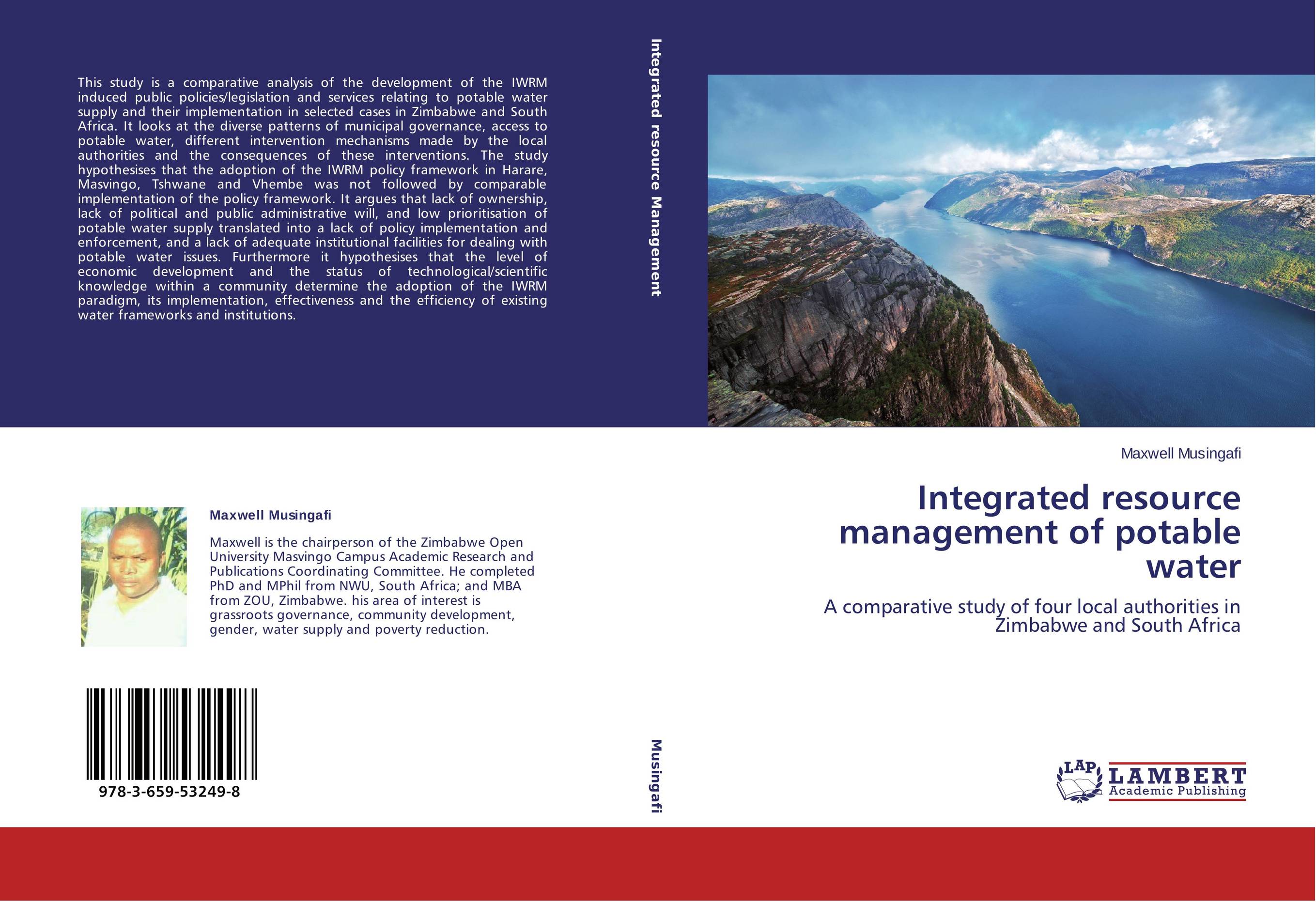| Поиск по каталогу |
|
(строгое соответствие)
|
- Профессиональная
- Научно-популярная
- Художественная
- Публицистика
- Детская
- Искусство
- Хобби, семья, дом
- Спорт
- Путеводители
- Блокноты, тетради, открытки
Integrated resource management of potable water. A comparative study of four local authorities in Zimbabwe and South Africa

В наличии
| Местонахождение: Алматы | Состояние экземпляра: новый |

Бумажная
версия
версия
Автор: Maxwell Musingafi
ISBN: 9783659532498
Год издания: 2014
Формат книги: 60×90/16 (145×215 мм)
Количество страниц: 424
Издательство: LAP LAMBERT Academic Publishing
Цена: 64694 тг
Положить в корзину
| Способы доставки в город Алматы * комплектация (срок до отгрузки) не более 2 рабочих дней |
| Самовывоз из города Алматы (пункты самовывоза партнёра CDEK) |
| Курьерская доставка CDEK из города Москва |
| Доставка Почтой России из города Москва |
Аннотация: This study is a comparative analysis of the development of the IWRM induced public policies/legislation and services relating to potable water supply and their implementation in selected cases in Zimbabwe and South Africa. It looks at the diverse patterns of municipal governance, access to potable water, different intervention mechanisms made by the local authorities and the consequences of these interventions. The study hypothesises that the adoption of the IWRM policy framework in Harare, Masvingo, Tshwane and Vhembe was not followed by comparable implementation of the policy framework. It argues that lack of ownership, lack of political and public administrative will, and low prioritisation of potable water supply translated into a lack of policy implementation and enforcement, and a lack of adequate institutional facilities for dealing with potable water issues. Furthermore it hypothesises that the level of economic development and the status of technological/scientific knowledge within a community determine the adoption of the IWRM paradigm, its implementation, effectiveness and the efficiency of existing water frameworks and institutions.
Ключевые слова: governance, Management, IWRM, Potable water, integrated water resources



